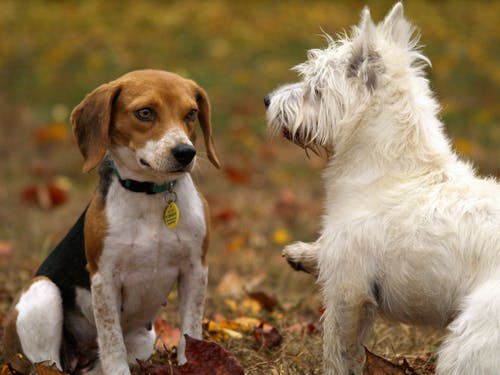Dogs that are trained to carry out work or complete the duties of people who have impairments are called service dogs. They are considered to be working animals; they are not pets. The job or task that the dog is trained to perform is directly related to the individual’s impairment.
Service dogs should have an unshakeable bond with their human partner since they help people with the day-to-day chores. They can help people with their medication, turn off the lights, open and lock doors, and do a range of other things to ease the lives of their human partners. Service dogs allow their human companions to take part in community activities; hence they have the capacity to encourage independence. Service dogs are unique animals and require extensive education and plenty of time.
Wonderful Ways on How Service Dogs Save Lives
These are some of the things service dogs can do. They can help people who can’t see or hear, take their wheelchairs, alert and protect people who have seizures, remind people who have mental illnesses to take their medicine and help a person who is having an anxiety attack. Some of the different sorts of service dogs and how they help people will be talked about in more detail below.
1. Hearing Dogs
Hearing dogs are trained to notify deaf and hearing-impaired owners of essential noises they might otherwise miss, like doorbells, fire alarms, alarm clocks, and even crying babies. To take proper safekeeping of your pets, you need a reputable vet beside you. You can search the web and look for veterinarians Turlock and inquire about their various services.
2. Guide Dogs
Guide dogs are among the most famous service dogs and are trained to react to environmental guiding signals and aid those who own them with the task of avoiding dangers and moving safely. These dogs are specifically trained to navigate around hazards like steps, curbs, inclines or dips and elevators, escalators, and even doors.
3. Medical Alert Dogs
Medical alert dogs use their extraordinary sense of smell to tell any issues for their owners. They can warn their owners of imminent seizures. Dogs that are alert diabetics will inform the owner regarding any fluctuations in blood sugar levels. To ensure your pet is in good and healthy shape, you can visit facilities like Monte Vista Small Animal Hospital for their wellness and maintenance.
4. Autism Service Dogs
Families with children who are autistic are the main beneficiaries of these canines. These dogs have received special instruction to help children with autism deal with everyday situations that could be challenging for them. They’re also taught to give a deep pressure treatment to their handlers with autism, which helps them calm down when they’re stressed. They can provide those with autism with a sense of security and increase confidence and emotional control.
5. Mobility Support Dogs
People with spinal cord issues, arthritis, or brain injuries could be able to benefit from mobility assistance dogs. They serve as service dogs who assist humans in getting from one location to another. These canines have been taught to perform various walking tasks, collect garbage and open and close doors. If emergency services for pets are needed, you can look for an emergency veterinary clinic on the web and contact them right away.
6. Psychiatric Service Dogs
Psychiatric dogs assist those with mental illnesses in various ways. This includes people suffering from mental health issues like anxiety, depression, and PTSD. Amazingly, the dogs detect the moment when their owners are experiencing anxiety attacks or flashbacks. Along with reminding their human partner to take medicine, psychiatric service dogs can assist in managing flashbacks and nightmares.
7. Allergy Detection Dogs
Although some allergies are not that severe, others can cause serious health issues or even death. Allergy-detecting dogs inform their handlers of possible triggers. These dogs are trained to detect gluten and peanuts and then notify their handlers. They allow children who have food allergies to be more independent. They can also protect children from potentially harmful reactions and provide parents with assurance.








